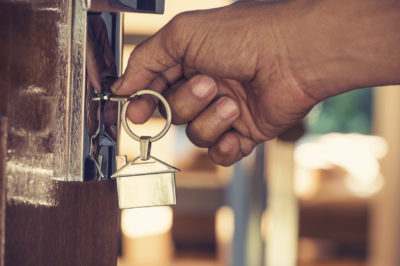Home ownership has long been considered a pillar of the American Dream – a sought-after goal with long-term financial benefits that renting simply doesn’t afford. That’s what many were told growing up, anyway. “Paying rent is like pouring money down the drain,” was the conventional wisdom passed down from our parents.
Boomers and older Gen Xers seem to have taken that message to heart and, more than any previous generation, are opting to remain in their current homes in retirement. An AARP survey found that nearly three-quarters of adults 50 and over want to stay in the same home as they age.
Whether that’s a wise financial move in or near retirement is a matter of considerable debate. Experts agree, however, that for some homeownership may not be a good investment. Instead of an asset, it can be a burdensome liability that drains retirement savings and limits lifestyle choices, they say.
For starters, there are the costs associated with homeownership beyond the monthly mortgage payment. These include:
- Big-ticket projects, like replacing a roof or heating system
- Regular maintenance, like lawn mowing and clogged drains
- Property taxes
- Home insurance (although bundling homeowner’s insurance with auto insurance can help alleviate some of the financial burden)
And although the norm for past generations was to enter retirement with their mortgage paid off, that’s not always the case. After putting plans to upsize on hold during the Great Recession, many are still seeking their “dream home.” Indeed those that are 50+ carry more mortgage debt than their parents did. From 1992 to 2020, the median outstanding mortgage balance for this age group has grown from $48,743 to $178,688.
That financial obligation could be potentially overwhelming in the event of a job loss, major illness or other crisis. The level of risk, of course, depends on the situation and resources of individual retirees, but one thing is clear: Those who carry mortgage debt into retirement are more likely to have financial difficulties and limited choices.
For that reason, those 50+ should be focused on making their savings work as hard as possible for as long as possible, Eleanor Blayney, a consumer advocate at the Certified Financial Planner Board of Standards, told the Washington Post.
The question of whether renting is the right option for you boils down to what makes the most sense for you financially. Here are some factors to keep in mind while weighing the decision.
Renting
Although far from a panacea, renting offers distinct advantages. For one thing, the responsibility and expense of maintaining the property rests with your landlord, not you. So, when the faucet leaks or the water heater goes kaput, all you have to do is pick up the phone and alert the owner to the problem. And for a low monthly cost, a renter’s insurance policy can offer protection for your personal property, liability coverage and more. (Learn more about what rental insurance covers.)
Another benefit: While the equity you have in a home is considered an asset on paper, that “wealth” is of little use until you sell your home. Once you do sell, that money can be put in a savings account or other investment vehicle where it’ll be more readily accessible when you need it – for say, medical expenses or the river cruise in France you’ve long dreamed of taking.
Another potential perk: The cost of renting can sometimes be less than owning. This is particularly true in the early years of a mortgage when much of what a homeowner pays goes toward interest instead of equity. That makes renting a great option if you only plan to do it for a year or two. But the savings associated with renting tends to diminish over time and reverses in favor of owning within 10 years. This calculator can help you determine when the turning point would be for you.
Now for the drawbacks: Rents can go up over time and owners can sell out from under tenants, forcing them to end the lease and find another place to live. As a renter, you also forego many tax benefits afforded to homeowners. And stock and mutual fund investments can always decline in value while property values increase.
Owning
The most touted benefit of homeownership is the tax deductions. These write-offs include mortgage interest, mortgage points and real estate taxes. Other tax breaks afforded to homeowners include depreciation on a home-based office and credits for installing energy-saving upgrades, such as water heaters and heating systems. And when you sell your primary residence, you can make up to $250,000 in profit if you’re a single owner, twice that if you’re married, and not owe any taxes on capital gains.
Critics argue that the benefits of these tax breaks don’t offset the overall costs of buying and owning a home, which, besides a monthly mortgage payment, include a down payment, closing costs, lawyers’ fees, maintenance fees and where applicable, homeowner association fees.
Need help deciding? Trulia has a Rent vs. Buy Index, which features a calculator that can help you determine whether renting or buying is more expensive in your location.
One of the major risks associated with homeownership is that values can and do decline, sometimes in spectacular fashion. If the Great Recession taught us anything, it’s that. Boomers saw a drop of nearly $1 trillion in home value when the real estate market tanked, Patrick Simmons, director of strategic planning in Fannie Mae’s economic research group, told the Los Angeles Times.
Next Steps
those 50+ should ask themselves three questions when pondering which route to take, Blayney and another expert, Jeff Bucher, president of Citizen Advisory Group in Ohio, told the Washington Post.
- How long will I live there?
- What else could I be doing with the money?
- What social services will I need?
The five-year rule – that you’ll want to stay in the same location for at least five years – is a good one for this age group. Closing costs, realtor’s fees and moving expenses make homeownership an expensive proposition up front, say Blayney and Bucher, and it takes time to make that money back through appreciation.
As for what else you could be doing with the money, the pouring cash down the drain analogy associated with renting applies to younger homebuyers, Blayney said. Boomers have had decades to build wealth and should instead be thinking about the best way to deploy what they’ve accumulated, she said.
That might mean selling the family home, putting some of the proceeds into a brokerage account and renting an apartment, said Blayney. “You have the ability to begin to engineer your income. You have a portfolio now with lots of possibilities.”







I lost my life-long career and half-paid-for home in the recession even though I had equity in it. I was 54. Since then, my monthly income has dropped by 75% and fluctuated every year as I tried to regroup and recoup. But my industry prized youth and I was relegated to laborious and part time jobs. Meanwhile, I had to rent. Nice apartment complexes required an income of 3 times the monthly rent so I had to rely on private owner’s apartments. In the past 11 years, I’ve had to move 6 times because owners: expected lawn maintenance when it was never mentioned in the lease; were slow or completely negligent to fix problems; knew of mold concerns in the property but didn’t disclose; threatened my safety for seeking legal assistance; raised rent to unaffordable levels at next lease renewal; and finally required me to move out so they could sell the property vacant. As a previous, mid-level, corporate executive I was an excellent, clean, respectful tenant, paid early every single month, and left the property in better condition than when I moved in. Nevertheless, I found l
“landlords” to be greedy, uncaring people who looked at tenants as cash cows, nothing more. If you can afford a nice, luxury apartment complex, go for it. Many of us cannot after losing our earning power at the height of it, while losing our homes as well. I have acculmulated a little over $200K and bought a 1/3 acre in a rural town, to build on. Now, with supply challenges, rising fuel prices and the Russian war, even that is on hold while I rent a 1BR with no kitchen counters or cabinets to speak of, no washer/dryer or dishwasher, or ceiling fans. It’s a quaint old place, but no weather stripping around 120 year old windows or doors. So air con works hard to overcome heat and humidity leaks. I say, if you can stay in your home, do so. You lose control over your life if you rent!
Sunny Sue:
My heart goes out to you! After way too many high dollar maintenance/improvement costs, I was considering selling and moving to an apartment. I didn’t want to throw good money after bad in this money pit! At 65, I had hoped to move only one more time (nursing home). When I heard your experience I cringed and have decided to stay put.
I so hope things turn around for you. Take care Susan!
Depends on how long you plan on staying in your home? I made the mistake of buying a fixer-upper, some 32 years ago, and I’m still hemorrhaging money for repairs, by the same token, the valuation of my property has increased 5 fold, from what I actually paid, therefore, even with the appreciated value of my home, I have just about broken even. Had I rented for 32 years, all of those monthly payments would have been money flushed down the toilet, at least now, I could sell my home, and have enough of a nest egg, to carry me through the foreseeable future, providing the economy stabilizes. The real problem with renting, is that you’re constantly at the mercy of the landlord.
Buying my home has been the best investment I made. My garage has my wood shop where I make nutty projects. My family refers to it as my ‘Lab’. Whenever I see an apartment fire in the news I’m grateful I live in a single family dwelling, where I don’t get burned down from someone elses’ idiot mistakes.
The only advantage apartment living gave me was access to a pool, once the maintenance man got it cleaned up. He only did that to meet women at the complex.
Good article but it missed one risk of renting. We have rented a house for 4 years, never late with the rent payment and just got a couple of months notice that the landlords are selling the house so they can take advantage of the hot sellers’ market in CT where we live. We can’t find anything suitable to rent or buy so our lives are disrupted. This too will pass but not soon we fear and we are facing storage costs and temporary housing.
This is an extremely informative and thorough article on a topic that is often discussed among my friends. Thank you
Great website always good information
I would like more information about owing and renting. I am thinking of selling my home and moving to be closer to my grand kids, and I am not sure what will be the best for me in a bigger city from where I live. Thank you for all your information
Home equity comprises the lion’s share of the net worth of most American families. Forgoing the slow wealth creation created by home ownership will leave many Americans worse off at retirement. Just sayin’.
Buying is almost always better. Just because it is the landlord’s responsibility to keep up the place, it doesn’t mean he/she will actually do it. Many rentals that I have seen are “dumps.” Also, just because you are not responsible for upkeep doesn’t mean you aren’t paying for it. You are paying for it through the rent you pay. Also, the rent you are paying also covers your landlord’s profit because they just don’t rent to you to break even. You don’t pay for a landlord’s profit as an owner.
Have you ever wondered why buying a house is cheaper than renting the same house? Think about it.